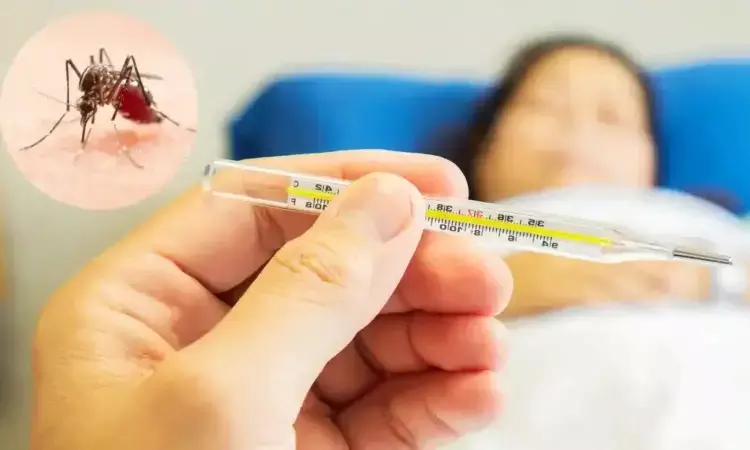- Home
- Medical news & Guidelines
- Anesthesiology
- Cardiology and CTVS
- Critical Care
- Dentistry
- Dermatology
- Diabetes and Endocrinology
- ENT
- Gastroenterology
- Medicine
- Nephrology
- Neurology
- Obstretics-Gynaecology
- Oncology
- Ophthalmology
- Orthopaedics
- Pediatrics-Neonatology
- Psychiatry
- Pulmonology
- Radiology
- Surgery
- Urology
- Laboratory Medicine
- Diet
- Nursing
- Paramedical
- Physiotherapy
- Health news
- Fact Check
- Bone Health Fact Check
- Brain Health Fact Check
- Cancer Related Fact Check
- Child Care Fact Check
- Dental and oral health fact check
- Diabetes and metabolic health fact check
- Diet and Nutrition Fact Check
- Eye and ENT Care Fact Check
- Fitness fact check
- Gut health fact check
- Heart health fact check
- Kidney health fact check
- Medical education fact check
- Men's health fact check
- Respiratory fact check
- Skin and hair care fact check
- Vaccine and Immunization fact check
- Women's health fact check
- AYUSH
- State News
- Andaman and Nicobar Islands
- Andhra Pradesh
- Arunachal Pradesh
- Assam
- Bihar
- Chandigarh
- Chattisgarh
- Dadra and Nagar Haveli
- Daman and Diu
- Delhi
- Goa
- Gujarat
- Haryana
- Himachal Pradesh
- Jammu & Kashmir
- Jharkhand
- Karnataka
- Kerala
- Ladakh
- Lakshadweep
- Madhya Pradesh
- Maharashtra
- Manipur
- Meghalaya
- Mizoram
- Nagaland
- Odisha
- Puducherry
- Punjab
- Rajasthan
- Sikkim
- Tamil Nadu
- Telangana
- Tripura
- Uttar Pradesh
- Uttrakhand
- West Bengal
- Medical Education
- Industry
Primary dengue infections can also lead to severe disease among kids, study questions common belief

India: A collaborative study in India has questioned the currently widely held belief that severe dengue is associated predominantly with secondary infections and stresses the importance of developing treatments or vaccines to protect dengue-naive populations.
According to the study, primary infections can also lead to severe disease, including dengue shock syndrome or dengue hemorrhagic fever challenging the belief that only secondary dengue infections are severe. The study findings, published in Nature Medicine, call for a reevaluation of dengue understanding and strategies in vaccine intervention research.
It is a common belief that dengue gets severe when one gets affected for the second time. The new study from the International Centre for Genetic Engineering and Biotechnology (ICGEB, New Delhi) showed that a substantial number of primary dengue infections also carry severe disease conditions.
Dengue is a global epidemic that has led to over 100 million cases annually. The clinical symptoms vary from mild fever to severe haemorrhage and shock, including some fatalities. The current paradigm is that these severe dengue cases mostly occur during secondary infections due to antibody-dependent enhancement after infection with a different dengue virus serotype.
India has the highest dengue burden worldwide, but not much is known about the disease severity and its link with primary and secondary dengue infections. To address this issue, Charu Aggarwal, International Centre for Genetic Engineering and Biotechnology, New Delhi, India, and her colleagues examined 619 children with febrile dengue-confirmed infection from three hospitals in different regions of India.
They classified primary and secondary infections based on IgM: IgG ratios using a dengue-specific enzyme-linked immunosorbent assay according to the World Health Organization (WHO) guidelines.
The main findings of the study were as follows:
- Primary dengue infections accounted for more than half of total clinical cases (344 of 619), severe dengue cases (112 of 202) and fatalities (5 of 7).
- Consistent with the classification based on binding antibody data, dengue-neutralizing antibody titers were also significantly lower in primary infections compared to secondary infections.
To conclude, dengue virus infection is a huge public health problem in India. Many patients develop severe diseases that can also be sometimes fatal. However, much of the ongoing vaccine intervention research is focused on the currently widely held global belief that primary dengue infections are not usually dangerous and that severe dengue diseases are mainly due to secondary dengue infections.
The study questions this widely held belief and shows that primary infections constitute a substantial fraction of severe disease cases and fatalities.
Reference:
Aggarwal, C., Ahmed, H., Sharma, P., Reddy, E. S., Nayak, K., Singla, M., Maheshwari, D., Chawla, Y. M., Panda, H., Rai, R. C., Gunisetty, S., Priyamvada, L., Bhaumik, S. K., Ahamed, S. F., Vivek, R., Bhatnagar, P., Singh, P., Kaur, M., Dixit, K., . . . Chandele, A. (2024). Severe disease during both primary and secondary dengue virus infections in pediatric populations. Nature Medicine, 1-5. https://doi.org/10.1038/s41591-024-02798-x
Dr Kamal Kant Kohli-MBBS, DTCD- a chest specialist with more than 30 years of practice and a flair for writing clinical articles, Dr Kamal Kant Kohli joined Medical Dialogues as a Chief Editor of Medical News. Besides writing articles, as an editor, he proofreads and verifies all the medical content published on Medical Dialogues including those coming from journals, studies,medical conferences,guidelines etc. Email: drkohli@medicaldialogues.in. Contact no. 011-43720751


